Minister Nguyen Manh Hung said that gratitude to teachers is always in the heart of every student. The best way to thank teachers is to study better, more practically to become a better person and to work.
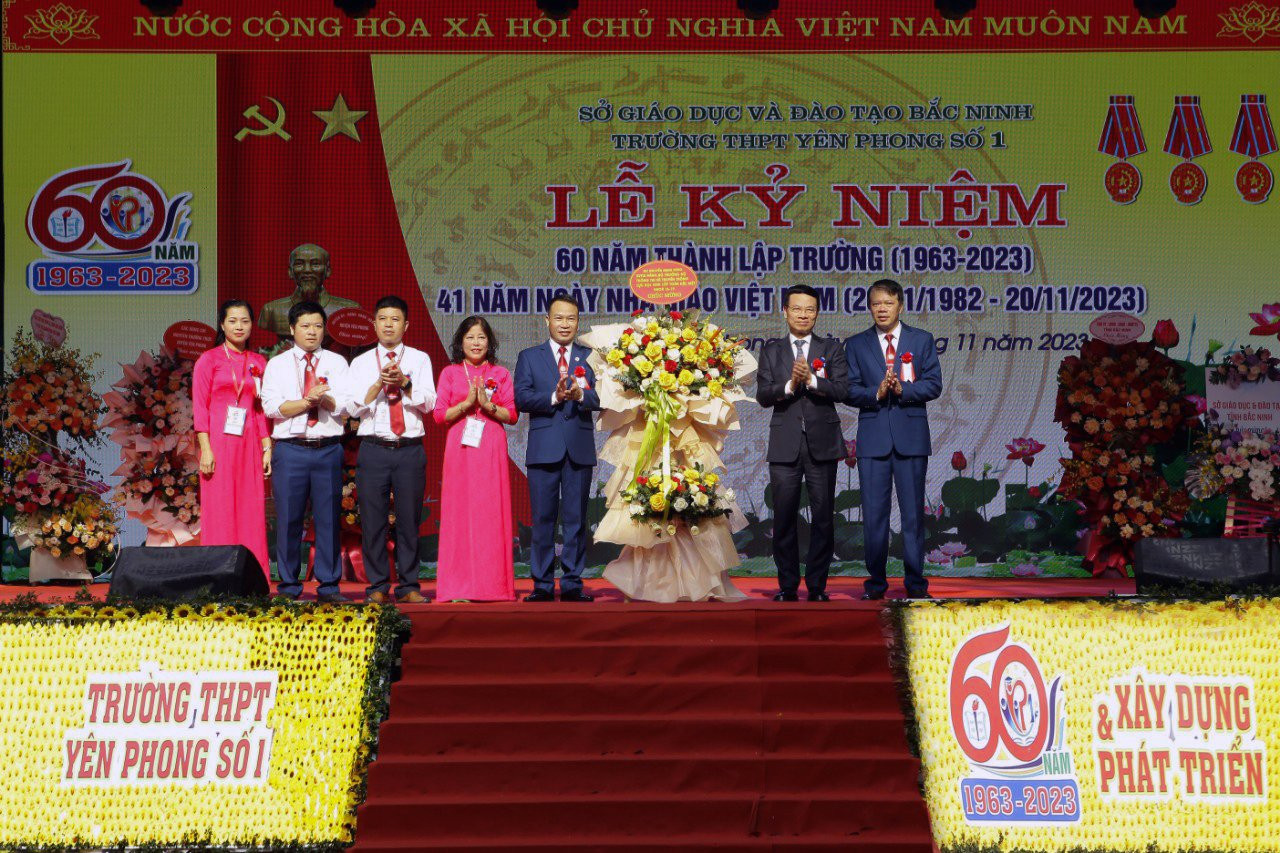
Minister of Information and Communications Nguyen Manh Hung attended and delivered a speech at the 60th Anniversary Ceremony of Yen Phong High School No. 1 (held on November 12). Photo: Provided by the school.
Today is truly a big festival of the school, full of generations gathered here, at the beloved Yen Phong School No. 1. The atmosphere is joyful, excited, warm of generations of teachers and students of the school.
Going back to the old school is always a great joy, a great happiness.
Meeting teachers, friends and the old schoolyard to see that this place is a part of each of our lives, has created each of us, has connected us and will continue to connect us, and not only between us but also between us and this school.
Come back here so we don't forget and because we don't forget we live. Because the past is not the past, but the past has created who we are today, that means the past is alive.
Every year our school does not age by a year but grows by a year. Over the past 60 years, the school has grown 60 times. Because the number of people graduating over the past 60 years has increased 60 times. And those who have studied here, graduated, and are now working are always an important part of the school. And that is why the strength of our school is so great.
Today, many former students of the school are present here. The former students are always an inseparable part of the school. They studied here, then went out to work and grew up, but in their hearts there is always nostalgia, always wanting to return. Many people want to contribute, each in their own way, it can be material, it can be spiritual, it can be effort, even just a little bit, a small drop of water. But rivers and oceans are also from small drops of water. This is a contribution to the country's education career, to the future generations of the country, to contribute to the better quality of the school's education, so that future generations of students can study better and become more successful.
Dear teachers,
The further students go from school, the more they miss it. The longer they stay away from school, the more they miss it. The older they get, the more they miss it. It's like missing the roots that created them. In that nostalgia is a deep gratitude to teachers and school.
Today, we would like to express our deep gratitude to our teachers. That gratitude may never be expressed, but it always exists, always here, in the heart of every student, in the mind of every student.
Teachers are like fathers and mothers. Parents and children are like tears. The love that teachers have for their students is limitless and unconditional, even though students always upset their teachers. Later, after graduating, we regret having upset our teachers. But it is that regret that makes us grow up to be good people. And so, the teachers' sacrifices were not in vain.
Today, seeing his former students become good people, useful to society, the teacher must feel warm.
If we can return to our old school in many different ways, especially in the digital environment, through digital transformation, teachers will feel even warmer, not having to wait until 60 years, until even years to have the opportunity to meet each other. We wish that this beloved Yen Phong school has a home in cyberspace, and in that home, teachers and students of all generations can see each other, meet each other, and help each other. Surely all of us present here today and those who do not have the conditions to come here today share the same wish.
Dear students,
If you want to study well, ask more questions. Asking is to learn. Our ancestors say: “Learning”. Most other countries do not have this word. Asking is thinking. Learning without asking is learning without thinking. Learning is eating, asking is digesting. Learning without asking is eating without digesting. Asking is finding the root, learning is the tip.
Learning without asking is like having a tip but no root. Asking is to understand, learning is to remember. Remembering a lot without understanding is called rote learning. Asking is to do less, learning is to do more. Less is to remember, more is to not remember. A learned person always seeks less.
Learning is to receive old knowledge, asking is to create new knowledge. If students ask questions, teachers will also think and thus create new knowledge. Teachers find it interesting to come to class every day because students ask questions.
Without daily fun, the lessons are not good. So by asking questions, you have turned the classroom into a creative environment. Learning is for students to learn from teachers, asking is for teachers to learn from students. In the 4.0 era, asking is the first thing to do in learning.
If you want to study well, you have to practice more. Practice is to learn. Our ancestors said: "Study". Most other countries do not have this word. Studying without practice is called empty learning.
"Teachers find it interesting to come to class every day because students ask questions. By asking questions, the classroom becomes a creative environment. In the 4.0 era, asking questions is the first thing students do." -Eat while your stomach is still empty. Study and ask questions to understand. But only by practicing can you understand. Understanding is when knowledge becomes yours. Studying without practicing, knowledge still belongs to others. Westerners use logic to understand, use debate to understand.
Eastern people do to understand, through doing to understand. Through practice to become wise, to attain enlightenment.
That is why practice is even more important to Eastern people. That is probably why the word “study” exists.
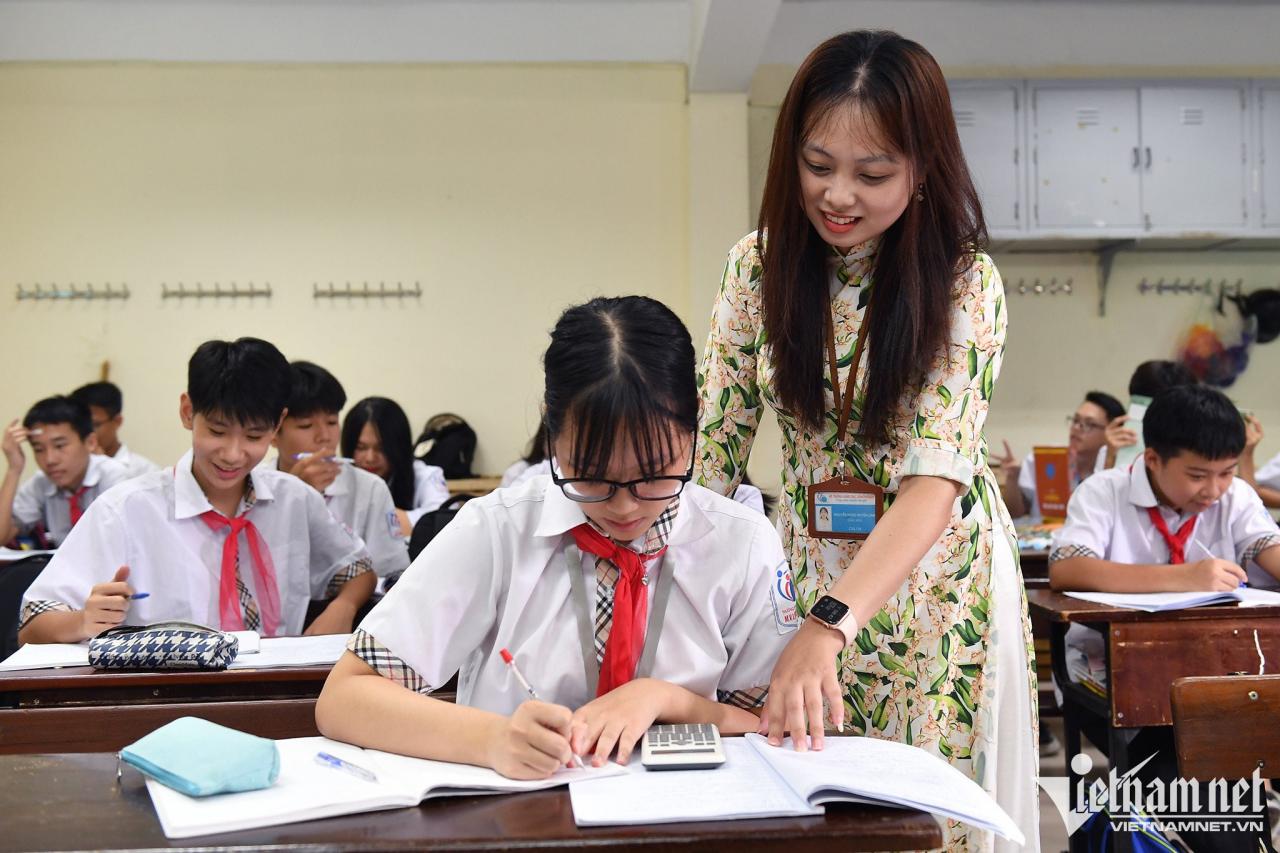
Studying makes you not know what else you need to learn. Practicing makes you know what you lack and what more you need to learn. Studying without practice always feels redundant. Studying with practice always feels lacking. Lack is the first condition of studying. Studying is when the teacher teaches and the student listens. And so, it is difficult for the student to be better than the teacher. Practicing is when the student does what the teacher sees.
And so the student can be better than the teacher. It's like a sports coach. The student can play soccer better than the coach. In the past, if there were few books, it was right to study first and then practice. If there are many books like now, then do first to know what you lack, then find books to read, find teachers to ask. Now, because of that, practice first and then study. So practice more, practice forever, study more, study forever.
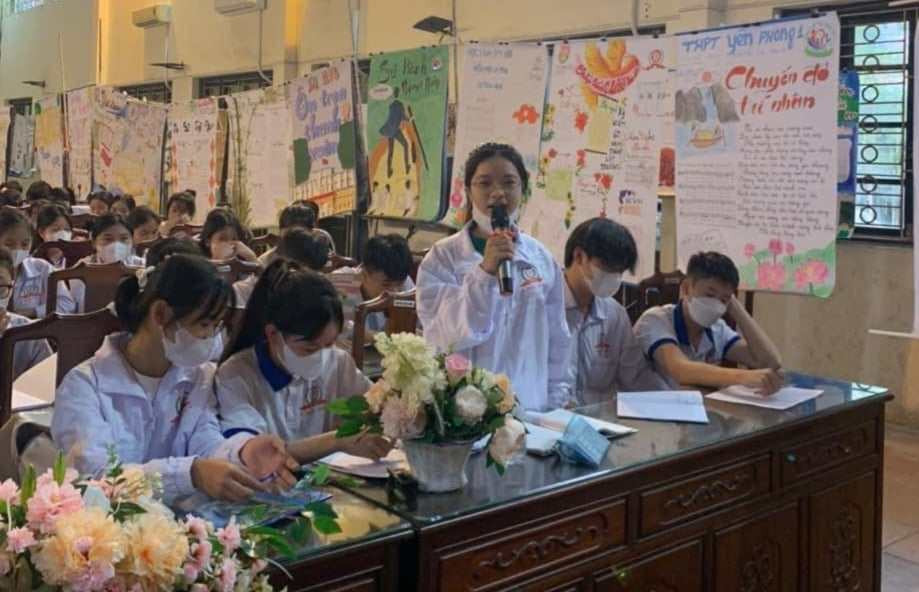
If you want to thank your teachers, the best way is to study better, study more practically, study to become a person, study to work. After graduating, go to work and become a talented person, contribute to the country's development, prosperity, bring honor to your family, your hometown and to Yen Phong School No. 1. And then you will come back to help the school, making the school have better and better conditions for teaching and learning for the next generations.
Dear Yen Phong people,
47 years ago, our Ha Bac math class of 1976-1979 set foot on Yen Phong land when we were only 13-14 years old, the first time we were away from home, away from our fathers and mothers. We were welcomed by the Yen Phong relatives, uncles and aunts, and taken care of like our own children. Now, we are over 60 years old, grandparents, but we still remember and are grateful for those days of famine and full of human love. It was difficult to raise our own children, but we had to raise other people's children.
Coming here today, we, the former students of Yen Phong school, would like to express our sincere and respectful thanks from the bottom of our hearts to the teachers, to the people who have taught and cared for us to grow up to be human beings. Perhaps among the many values that have helped us become human beings, gratitude is the most important. We will carry this upbringing until the end of our lives and will pass on this value to the next generations.


![[Photo] Closing of the 14th Conference of the 13th Party Central Committee](https://vphoto.vietnam.vn/thumb/1200x675/vietnam/resource/IMAGE/2025/11/06/1762404919012_a1-bnd-5975-5183-jpg.webp)


![[Photo] Prime Minister Pham Minh Chinh receives the delegation of the Semiconductor Manufacturing International (SEMI)](https://vphoto.vietnam.vn/thumb/1200x675/vietnam/resource/IMAGE/2025/11/06/1762434628831_dsc-0219-jpg.webp)


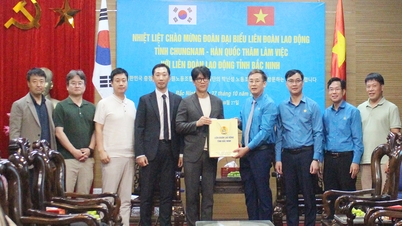



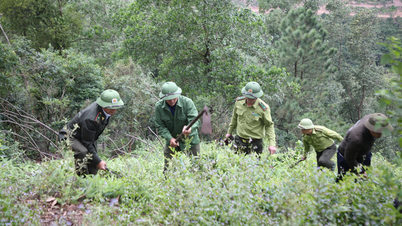
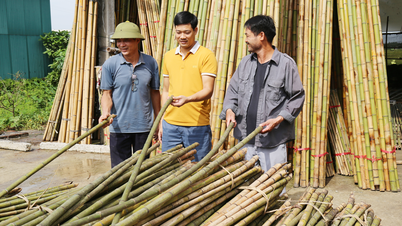
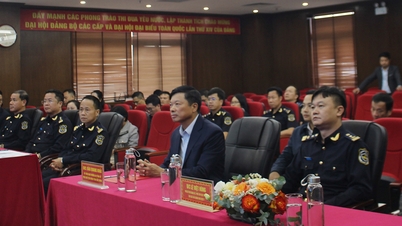
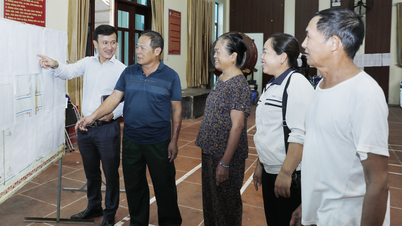


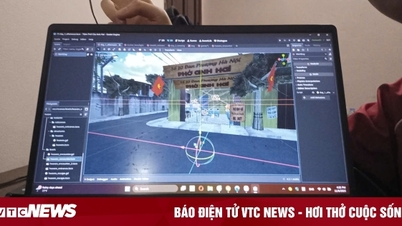

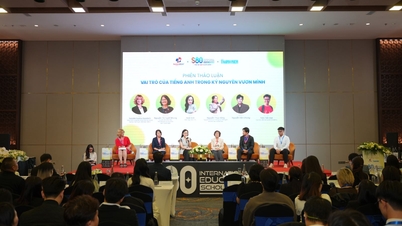

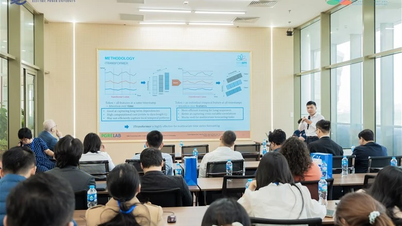

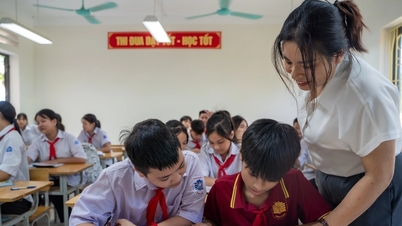
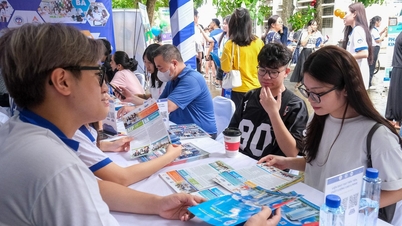







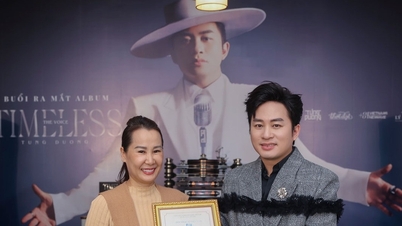
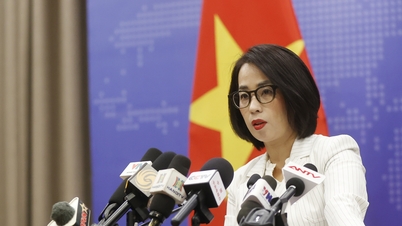



































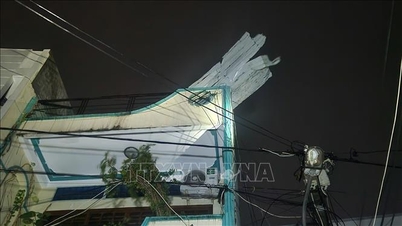


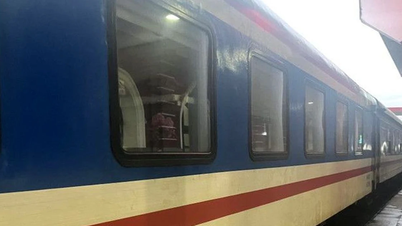

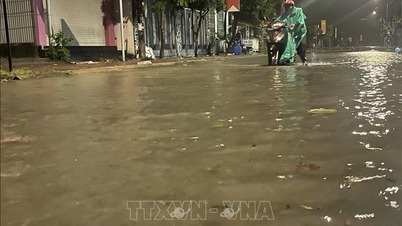












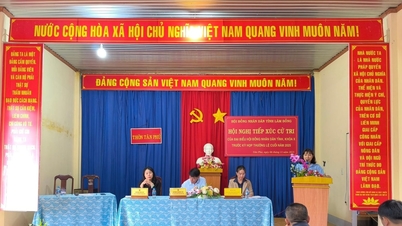

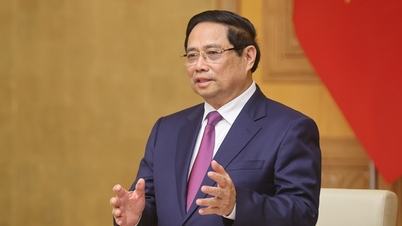




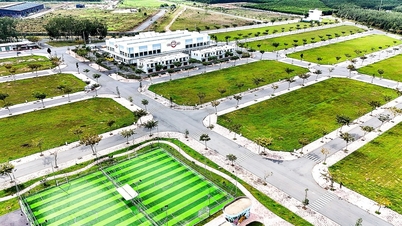















Comment (0)